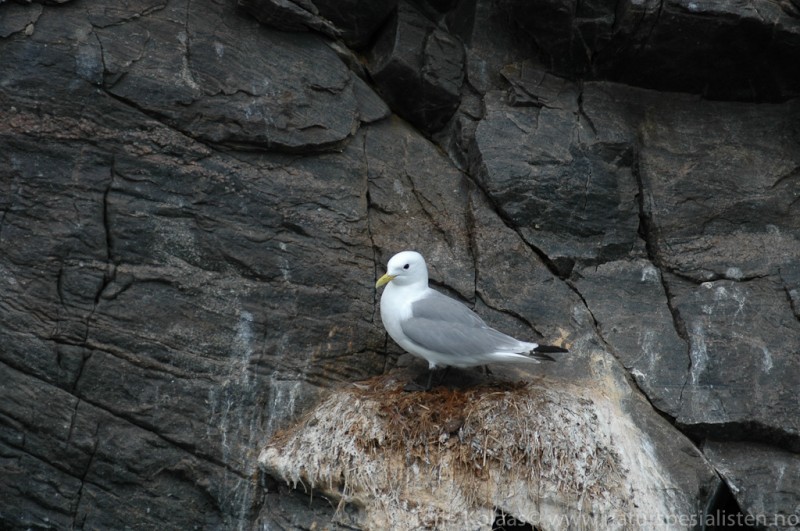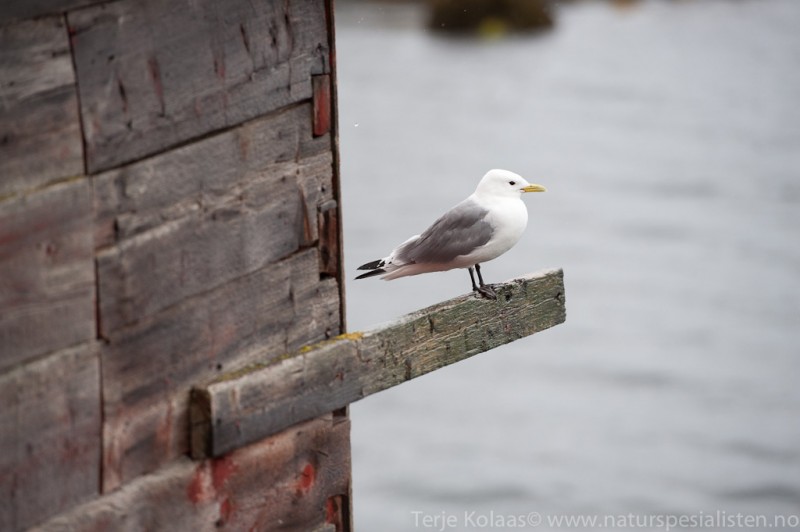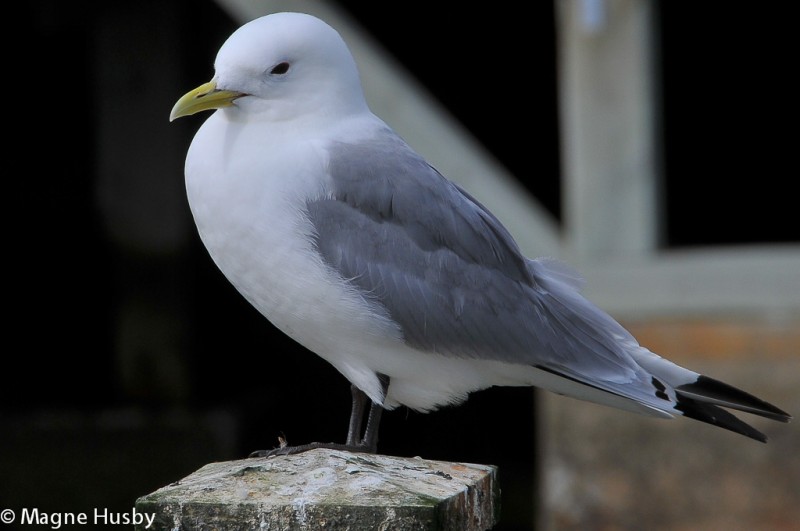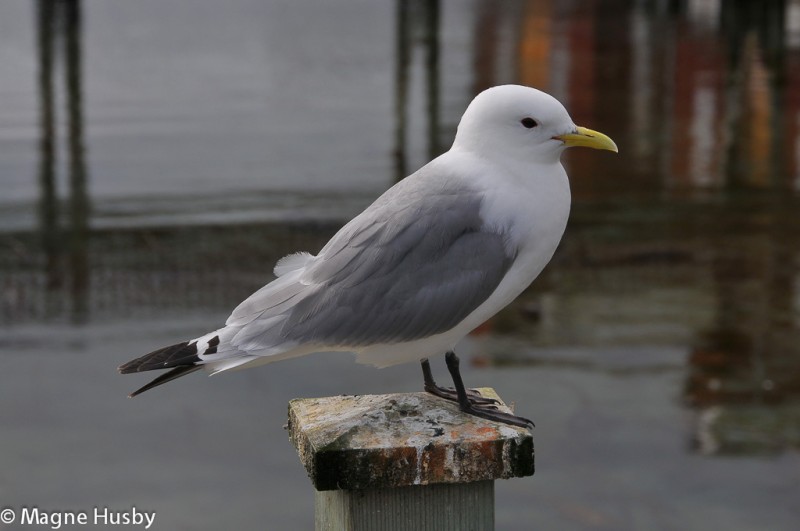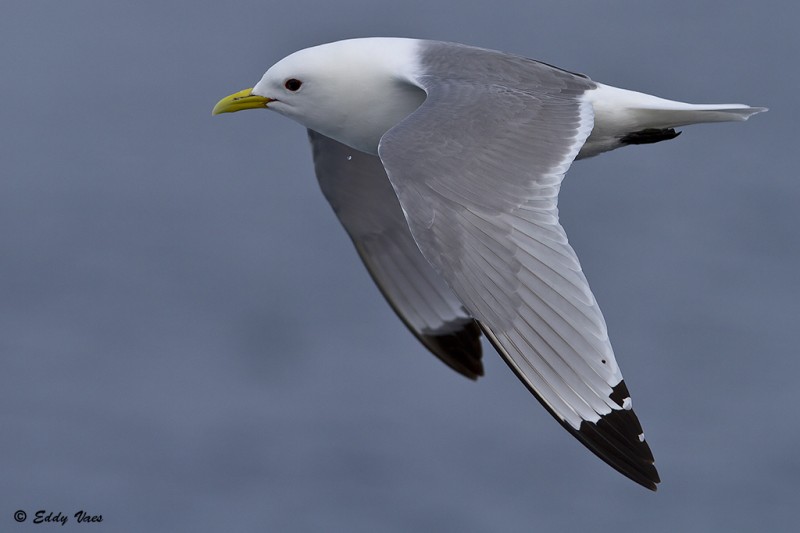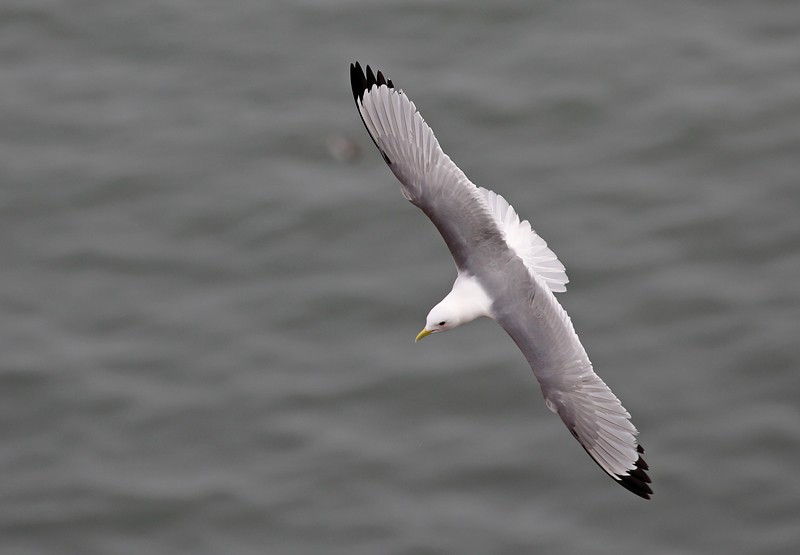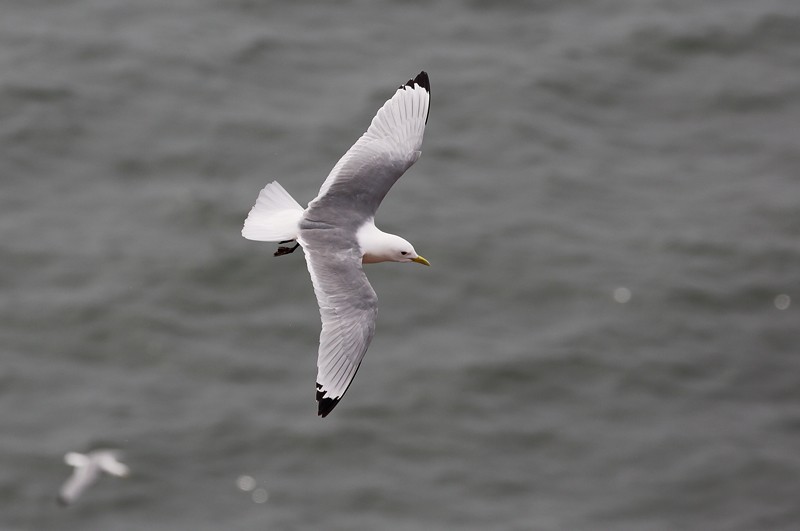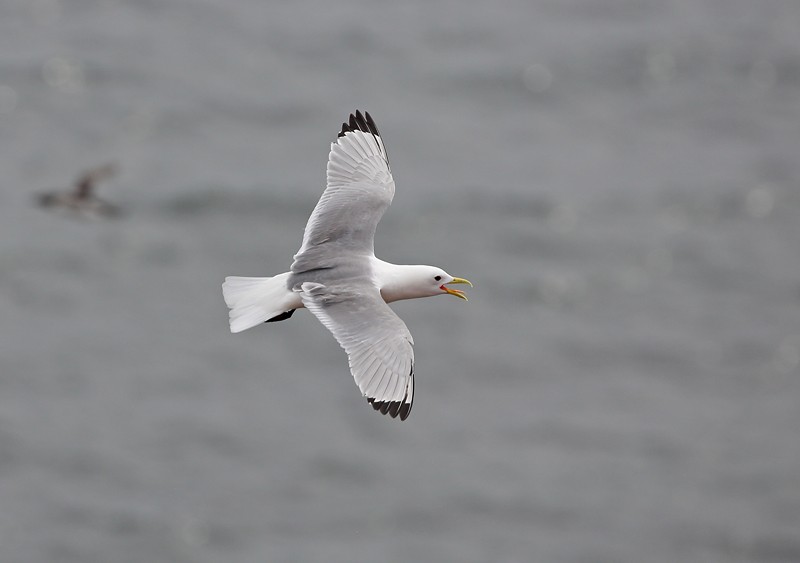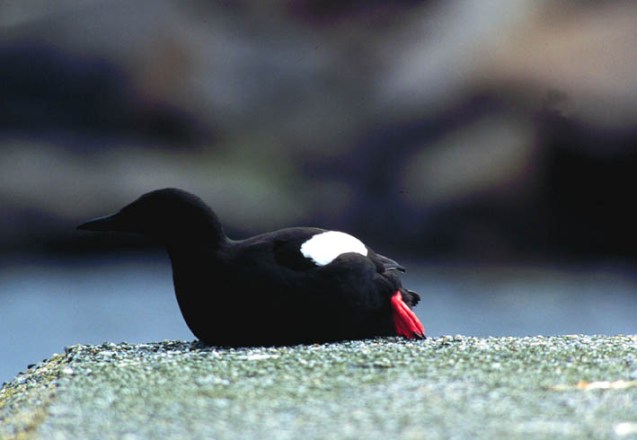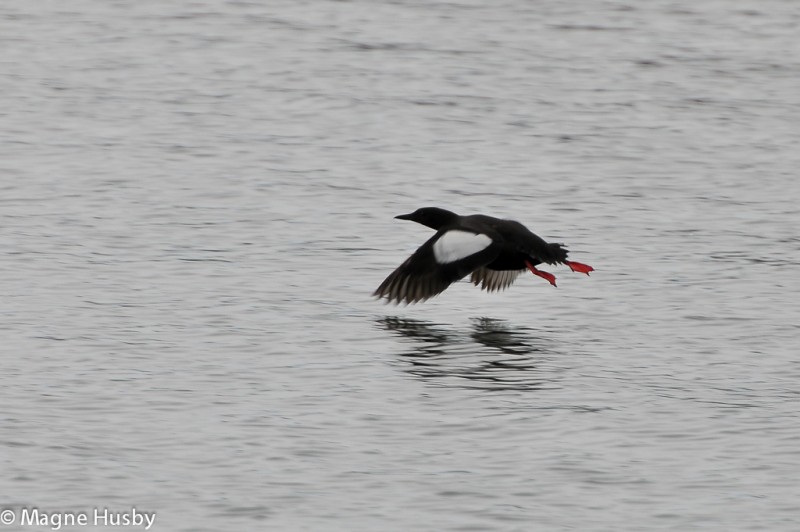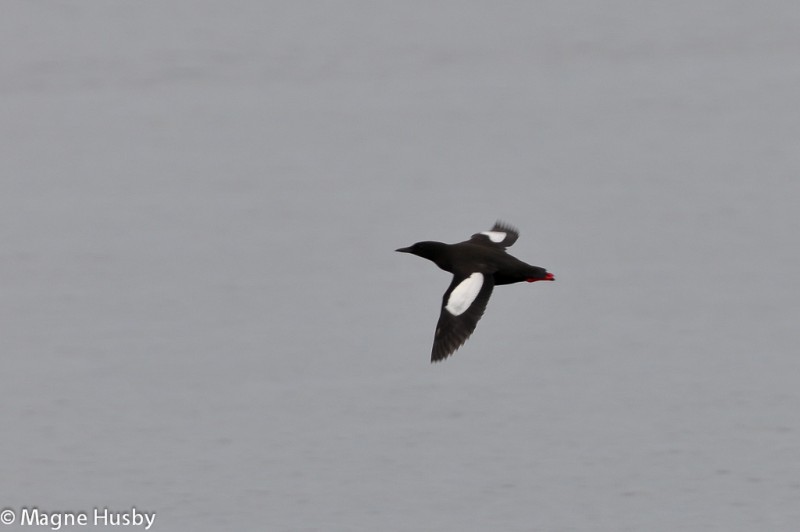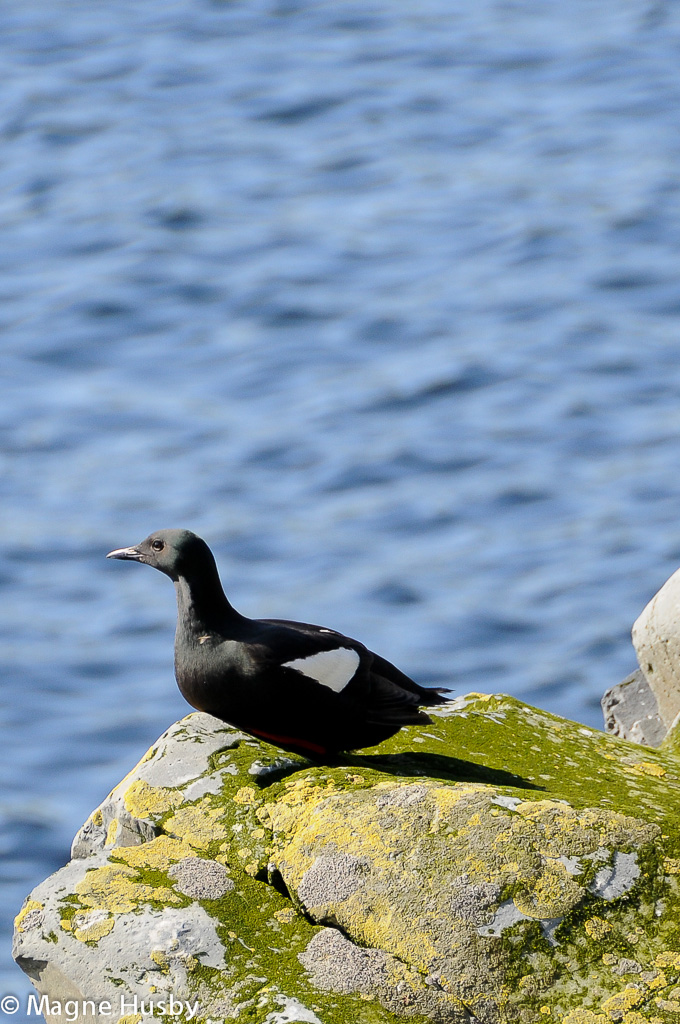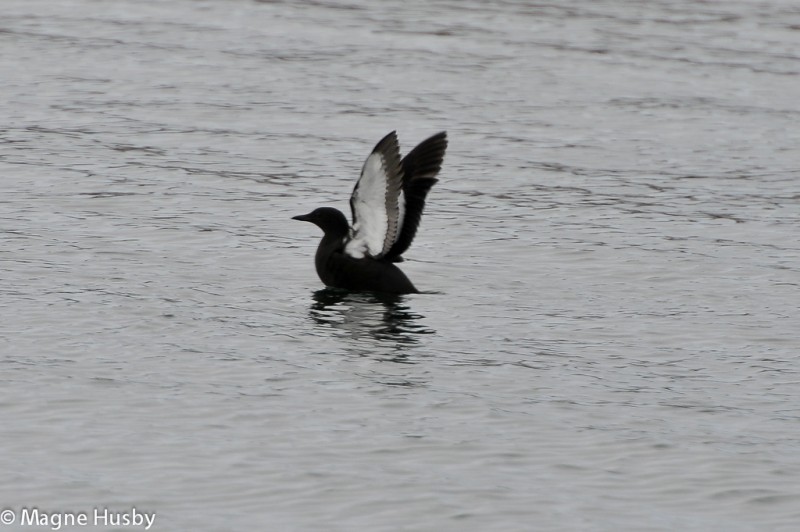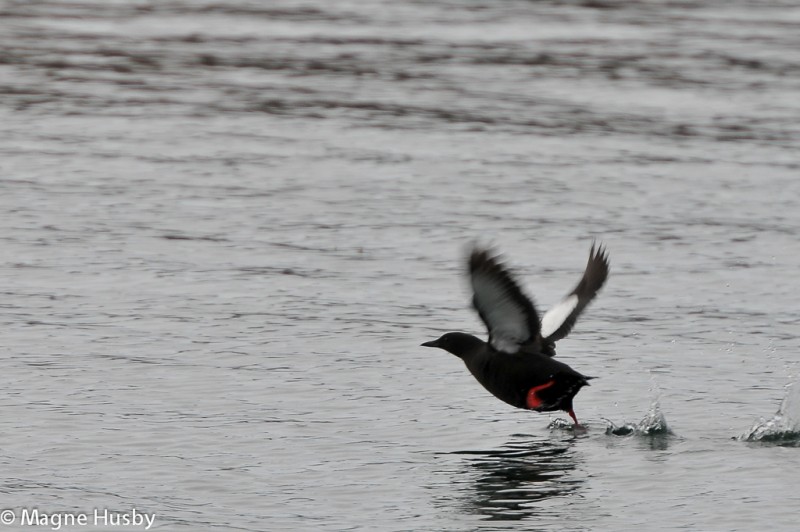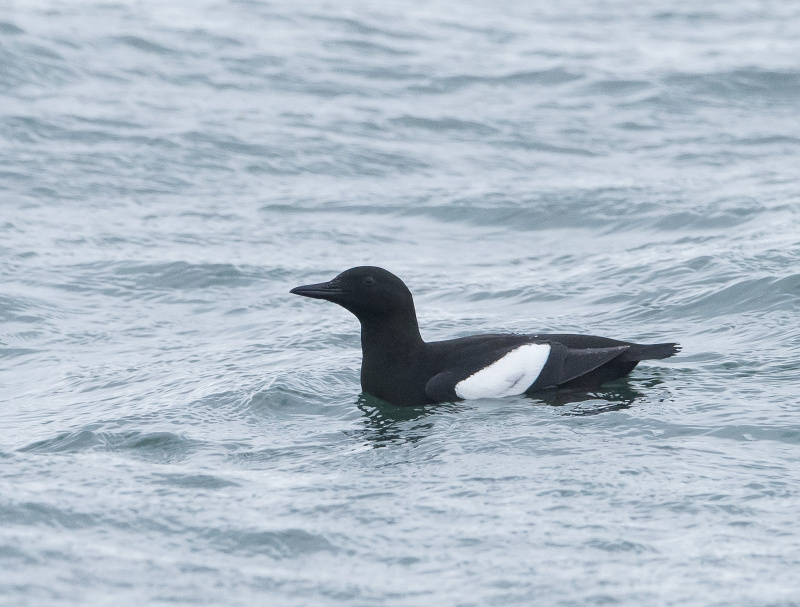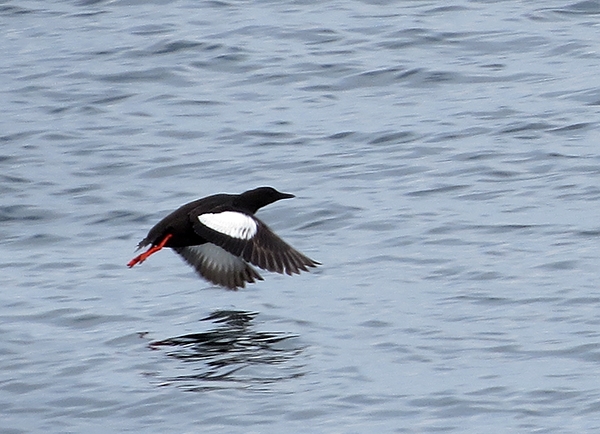Kittiwake (Rissa tridactyla)
Black Guillemot (Cepphus grylle)
Small and agile gull with all black wing-tips, black legs (adults) and yellow bill. Area close to wing-tips much paler than rest of wings, and often visible at surprisingly long range (more so than the black tips). Adult winter with grey neck and black half-collar. Juveniles with black zig-zag pattern to wings, resembling pattern seen in Little Gull, Ross's Gull and Sabine's Gull. Differs from those in; no dark bar on secondaries, underparts of wing white, back grey, black on primaries reaches wing-tip. Flight action different from larger gulls; fast, stiff wing-beats and elegant maneuvering even in strong winds.
Sound:Highly vocal at breeding ground. A mewing "kitti-wake", with the pitch rising on the second drawn out syllable, and then falling. Generally silent elsewhere, except when squabbling over food.
Contact call:
Distribution:
Wikipedia: map (se also Xeno-canto below)
Ecology:Birdlife ecology
Links:
Observation.org Latest observations
Image search Flickr NB! May give other species
CCSounds:Recorded by Stein Ø. Nilsen,http://www.xeno-canto.org ,CC license
Unmistakable in summer with almost all black plumage. White oval wing-patches in all plumages. Only auk with white wing-panels. Bill quite slender and pointed, body and wings rounded. Winter plumage blotched in grey and white, with dark wings (with white coverts). Typically scans for food by frequently dipping forehead in the water.
Sound:Call surprisingly high pitched. Quite pure, drawn out, plaintive whistling notes in same pitch range as Hazel Grouse.
Contact call:
Distribution:
Wikipedia: map (se also Xeno-canto below)
Ecology:Birdlife ecology
Links:
Observation.org Latest observations
Image search Flickr NB! May give other species
CCSounds:Recorded by David Farrow. http://www.xeno-canto.org .CC license

 English
English Albanian
Albanian
 Armenian
Armenian
 Bulgarian
Bulgarian
 Catalan
Catalan
 Croatian
Croatian
 Czech
Czech
 Danish
Danish
 Dutch
Dutch
 Finnish
Finnish
 French
French
 Georgian
Georgian
 German
German
 Greek
Greek
 Hungarian
Hungarian
 Italian
Italian
 Latvian
Latvian
 Lithuanian
Lithuanian
 Macedonian
Macedonian
 Norwegian
Norwegian
 Polish
Polish
 Portuguese
Portuguese
 Romanian
Romanian
 Russian
Russian
 Sami : Lule sami
Sami : Lule sami
 Sami : North sami
Sami : North sami
 Sami : South sami
Sami : South sami
 Scientific names
Scientific names
 Serbian
Serbian
 Spanish
Spanish
 Swedish
Swedish
 Ukrainian
Ukrainian


